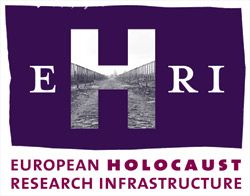Project facts
Presentation
Modern, democratic Europe developed out of the ashes of Auschwitz. It is therefore crucial that research into the Holocaust continues to progress. Only then can our history's darkest chapter be reread and refined by new generations. For Europeans to understand this shared past, the endeavour must transcend national borders.
Trans-national Holocaust research, commemoration and education is the mission of the European Holocaust Research Infrastructure (EHRI), and its main challenge is the wide dispersal of sources and expertise across many institutions. EHRI overcomes such fragmentation by connecting sources, institutions and people. The EHRI Portal enables online access to information about Holocaust sources, no matter where they are located. The Conny Kristel Fellowship gives researchers access to the resources of the world's twenty leading Holocaust archives. EHRI's extensive programme of networking and training brings people together. Last but not least, EHRI promotes innovative tools that advance the digital transformation of Holocaust research.
Impacts & Results
The EHRI project initially ran from 2010-2015 and was then followed by the EHRI-2 project from 2015-2019. While the first phase focused on the coordination of all the partners, the second stage sought to futher expand the community and to continue to serve as a 'best practice' model for other humanities projects. Both projects aimed at undertaking an ambitious programme of research and innovation to support research into the Holocaust.
EHRI is currently supported by two project consortia consisting of 27 partners from across Europe, Israel and the United States.
The EHRI-3 project will run from 2020-2024. It deepens the integration of Holocaust archives and research that has been undertaken by EHRI since 2010. The project will lead to:
- a substantial increase in the coverage of the EHRI Portal, particularly with regards to the holdings of micro-archives;
- the development of new digital tools that connect dispersed Holocaust sources;
- the delivery of state-of-the-art training and education opportunities for researchers and archivists;
- the continuation and enhancement of the Conny Kristel Fellowship Programme.
The EHRI Preparatory Phase project (EHRI-PP) will run from 2019-2022. EHRI was added to the European Strategy Forum for Research Infrastructures (ESFRI) Roadmap in 2018 and is currently transforming itself from a project into a permanent organisation that will help secure the future of trans-national Holocaust research, commemoration and education. EHRI will undertake all the necessary legal, financial and strategic work to have this permanent organisation fully operational by January 2025, the 80th-anniversary of the liberation of Auschwitz.

